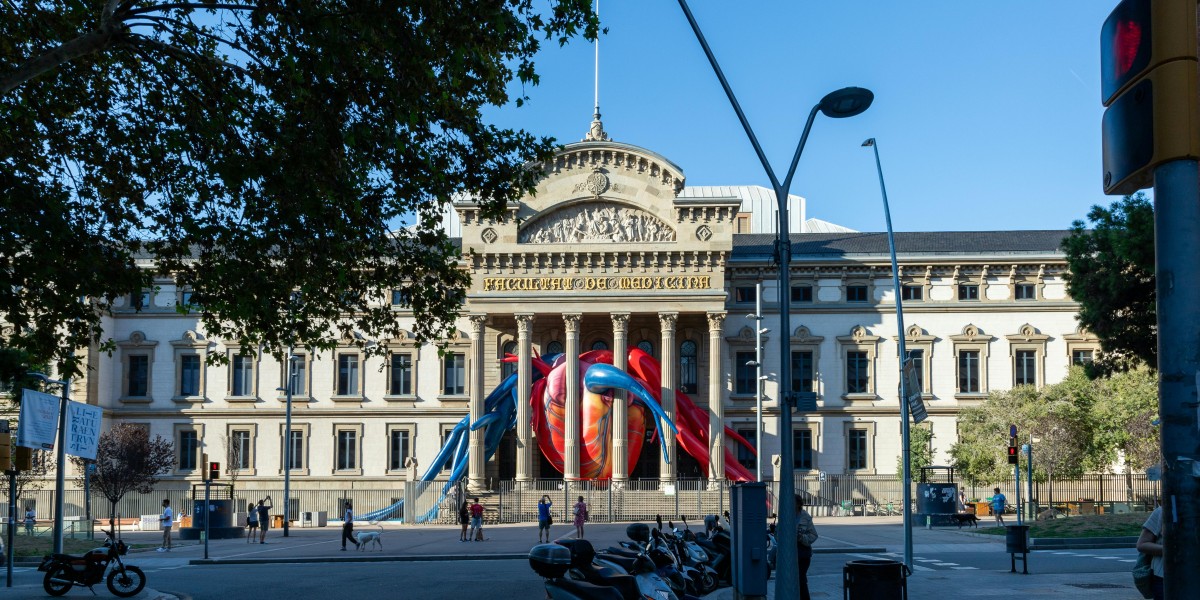
Studying in Barcelona combines academic excellence with the city's popping culture and international community. Known for its renowned educational institutions and awesome social scene, Barcelona is a magnet for international students. Living in Barcelona as a student offers a balance of beach life, social activities, and heaps of learning opportunities.
Why choose Barcelona for your studies?

Barcelona stands out as an outstanding study destination, offering a welcoming environment for over 20,000 international students and researchers each year. Its universities, such as the Autonomous University of Barcelona (UAB), University of Barcelona, and Pompeu Fabra University (UPF), rank among the best in Spain.
Barcelona hosts Spain’s second-largest economy and leads in high-tech infrastructure, housing many local and international company headquarters. This creates various internship possibilities and job opportunities for students looking to stay after they graduate.
What to study in Barcelona and where

The city is home to approximately eight main universities, along with numerous colleges and business schools. Besides the three previously mentioned public universities, there's the public Polytechnic University of Catalonia – Barcelona Tech, which specialises in engineering, architecture, science, and technology.
Other notable institutions include the Open University of Catalonia and Ramon Llull University. For those interested in creative fields, the Catalonia College of Music, ESCRBCC (Catalonia’s School of Conservation and Restoration), and IED European Institute of Design offer courses in graphic design, fashion, and sculpture. Additionally, the city boasts several prestigious business schools, including ESADE, IESE Business School, and EADA Business School.
How much does it cost to study in Barcelona?
Studying in Barcelona comes with variable costs depending on the institution and course level. Tuition fees for public universities generally range from €2,800 to €3,600 per annum for EU/EEA students and €4,000 to €6,000 for non-EU/EEA students. Private institutions and business schools charge anywhere from €5,500 to upwards of €28,000 annually, with prices varying based on bachelor's or master's programmes.
While university in Barcelona is not free for international students, some universities offer grants which help with the costs of tuition fees. The International University of Catalonia, for example, offers International Excellence Grants covering 20% of tuition fees. The Spanish government also offers general scholarships and mobility grants, although some of these are only available to EU residents. Living in the city can be expensive, but it is possible to enjoy student life in Barcelona without splashing out too much.
Student accommodation

Barcelona offers a variety of student accommodation options, including university dorms, shared flats, and private rentals. While many students choose residence halls provided by universities, these can cost around €1,000 a month and fill up quickly. The best student areas in Barcelona depend partly on where you plan to study and how much you can spend on rent.
A more affordable option involves renting a room in a shared flat, often preferred in neighbourhoods like Gracia, El Poblenou, and L’Eixample. This is a good, cheap accommodation option for students where room rentals start at around €350 a month.
You can rent a room in a flat from your home country without needing to visit in person, using idealista's online booking service. You can also opt for insurance that simplifies the rental process by requiring no deposit and covering unexpected issues.
Safety when studying in Barcelona

Barcelona is generally considered safe for international students, but it's wise to remain mindful of your surroundings. Petty crimes, like pickpocketing, are common, so safeguarding personal belongings is essential.
It's advisable to avoid walking alone late at night and to inform friends of your plans. While the city's safety standards are high, students should stay aware and be especially careful in crowded areas.
Studying in Barcelona as an international student

Studying in Barcelona offers a host of advantages, including its dynamic lifestyle, proximity to the beach and wide range of educational options.
If you're a UK citizen or from another non-EU/EEA country and planning to study in Barcelona for more than 90 days, a student visa is required. Your studies might involve full-time studies at an accredited institution leading to a degree, diploma, doctoral studies or various training activities. It also applies to secondary school exchange programs, internships or traineeships, volunteer services, "au pair" programmes, and roles as teaching assistants.
Can I study in English in Barcelona?
Many universities in Barcelona offer fully English-taught programmes, especially at the master's and doctoral levels. Some incorporate Spanish, Catalan and English, providing exposure to all languages in an academic setting. You’ll also find various student exchange agreements, such as ERASMUS, which sometimes offer Catalan and Spanish language classes to ensure everyone is well-acquainted with local languages and culture.
What to pack for study abroad in Barcelona

Preparation is key for studying in Barcelona. For stays under three months, a visitor's visa, health insurance, and financial proof may be necessary, depending on your nationality. Key documents to pacl include your passport, visa, additional valid ID, plane tickets, health insurance proof, and enrollment documents. If staying longer than six months, it is a good idea to apply for a Foreigner’s Identity Card (TIE). Consider also packing sun cream for the warm climate, comfortable shoes for city exploration, and swimwear for leisure activities.
